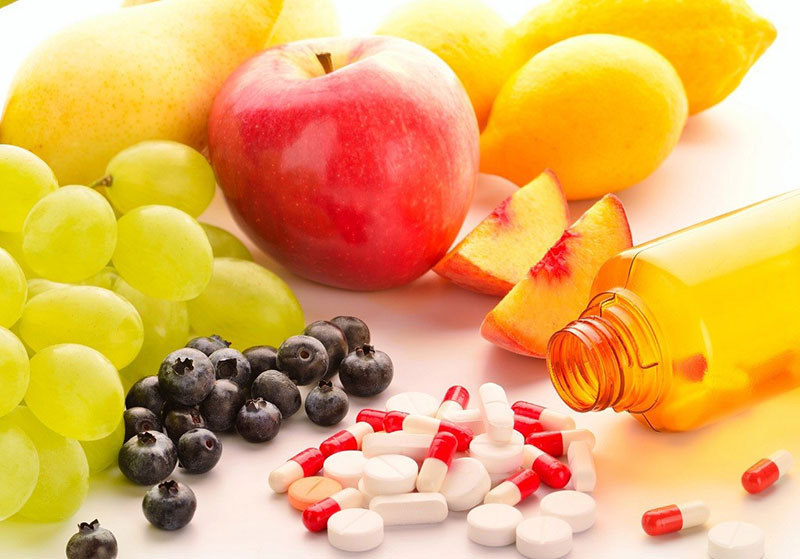Feeling sad? While reaching for a sugary snack is a common and fairly harmless way to lift your mood, consider how that sugary treat may affect you emotionally after the immediate gratification wears off.
There’s nothing abnormal or wrong with turning to food to lift your mood, but as it turns out, you may inadvertently be making things worse despite the initial boost.
While it’s often difficult to pinpoint the exact cause of a bad mood or mood swings (so many factors play a role, such as stress, sleep, work, relationships, physical activity, and environment), a growing body of research points to some striking links between diet and mood.
Understanding Nutritional Psychiatry
The connection between food and mood is so complex and mysterious that an entire field of study has been dedicated to it.
Nutrition psychiatry is the study of how diet affects mood affects mental health – is in its relative infancy. However, scientists, doctors, and mental health professionals in this emerging field have come to some pretty insightful conclusions, such as:
- A 2020 review of 61 studies found that for some people, simply increasing fruit and vegetable intake can improve mental health and emotional well-being.
- A 2015 review found that highly processed foods may be associated with an increased risk of depression.
- A 2019 study concluded that certain foods, especially those rich in antioxidants, and other nutrients may be an adjunct to depression treatment. The study found that omega-3 fatty acids (EPA 740 mg and DHA 400 mg) improved depressive symptoms in patients. Although research is mixed, adequate folate and vitamin B12 also appear to play a role in preventing the risk of depression. Vitamin D also plays a role because it regulates calcium and serotonin levels in the body. Vitamin D deficiency is associated with an 8-14% increase in depression and a 50% increase in suicidal ideation.
- According to another 2015 report, eating nutrient-poor foods instead of nutrient-dense ones (like granola bars instead of fruits and vegetables) can deprive the brain of vital nutrients and lead to irritability.
Can Diet Contribute to Mental Illness?
Ten years ago, people would have called you stupid for thinking that food could affect your mental and emotional health. However, there is growing scientific evidence to support this claim.
Research has shown links between certain foods and mental illness and mood disorders, including anxiety and depression.
Overall, more data is needed to confirm the effects of food on mood (and we must remember that each person reacts to food differently), but it is worth monitoring your food choices and subsequent mood to understand your habits and patterns.
Consider how certain foods affect you
The scientific method is the best tool for studying complex human problems and issues. High-quality, large-scale clinical trials give us invaluable information about human health and all its intricacies. While anecdotal evidence is not scientific evidence, personal anecdotal evidence related to your own observations of how you feel may be enough to inform your decision.
For example, if you know that eating foods high in sugar makes you feel sluggish and unfocused, that fact is enough to encourage you to avoid sugary foods during times when you need to be energetic and productive. The opposite may also be true: if you restrict yourself too much by starving your body, you may become irritable.
If you know that drinking alcohol makes you irritable the next day, that fact is enough to encourage you to make carefully considered decisions about your drinking.
The emerging field of nutritional psychiatry offers promising insights into how diet affects mood. More research is needed, but you can use your own experience to make smart dietary decisions that positively impact your mood.
Foods That Can Boost Your Mood
Here’s the good news: You can positively impact your mood by eating nutrient-rich foods that have been linked to better mental health. Foods rich in fiber, protein, antioxidants, prebiotics, and essential fatty acids, have the strongest effect on mood.
Whole grains and high-fiber foods
Whole grains and other high-fiber foods can improve your mood thanks to the satiating, blood-sugar-stabilizing effects of fiber.
Fiber helps slow the digestion of carbohydrates, allowing you to get the most out of your meals and snacks and avoid a blood sugar spike followed by a crash.
Many high-fiber foods also contain essential nutrients like B vitamins, which may benefit healthy people who are stressed, according to a 2019 literature review of 18 studies.
Here are a few whole grain and high-fiber foods that may support your emotional health:
- Oatmeal cereal
- Quinoa
- Whole grain bread
- Brown rice
- Amaranth
- Barley
- Beans and legumes
- Starchy vegetables (e.g. sweet potatoes, squash, pumpkin, peas)
- Starchy fruits (e.g. apples, bananas, cantaloupe).
Foods Rich in Antioxidants
Antioxidants have many important functions in the body, but most notably, they protect cells from free radicals – a type of unstable, damaging molecule that has been linked to cancer and other diseases.
Low antioxidant intake has been linked to depression, and scientists believe that antioxidants play an important role in protecting neurons and stabilizing mood.
Try adding some of these foods to your diet to improve your mood:
- Berries (e.g. raspberries, blueberries, blackberries, goji berries, mulberries).
- Dark leafy greens (e.g. spinach, arugula, kale, dandelion, turnip, lettuce, bok choy).
- Other vegetables (e.g. beets, asparagus, radishes, turnips, squash, artichokes, peppers).
- Coffee
- Dark chocolate
- Spices
Fermented foods
Fermented foods contain high levels of vital probiotics that support the health of your microbiome. Research shows that gut health has a significant impact on overall health, including mood. What’s more, adding more probiotics to your diet can directly increase levels of serotonin, an important neurotransmitter that regulates mood. Interestingly, most serotonin is produced in the gut.
Examples of fermented foods include:
- Sauerkraut
- Kimchi
- Yogurt
- Kefir
- Kombucha
- Tempeh
- Miso
- Natto
Other fermented foods and drinks, including bread and beer, do not contain live probiotics due to the filtering and cooking processes.
Foods High in Essential Fatty Acids
Essential fatty acids, primarily omega-3 and omega-6, are important fats that you must get from your diet because your body cannot make them internally yourself.
Omega-3s are associated with a reduced risk of developing depression and relief from symptoms of depression. Essential fatty acids may also have a positive effect on anxiety.
Foods high in essential fatty acids include:
- Fatty fish: salmon, sardines, cod, herring, mackerel, rainbow trout, tuna, bass.
- Nuts and seeds: walnuts, flax seeds, peanuts, pumpkin seeds, hazelnuts.
- Certain oils: flaxseed oil, canola oil, safflower oil, olive oil.
- Other foods: avocados, olives, whole eggs fortified with omega-3.
Note that the mood-boosting benefits come from eicosapentaenoic acid (EPA) and docosahexaenoic acid (DHA), which are found predominantly in fatty fish. Plant-based omega-3s come in the form of alpha-linolenic acid (ALA), which is converted to EPA and DHA. The rate of conversion of ALA to EPA in the human body is between 5% and 8%.
Foods That Can Ruin Your Mood
As shown above, many foods can improve your mood and boost your emotional health. On the other hand, many other foods can negatively impact your mental health and ruin your mood. Here is a review of some foods associated with low mood and mood disorders.
Sugary Foods
Sugar, no matter how delicious it may be, is thought to fuel anxiety and depression. Eating too much sugar, especially in processed foods like candy and desserts, can increase your risk of developing mood disorders. Refined Carbs Linked to Depression
High-Fat Foods
Research Finds Link Between trans fat intake and depression. Other studies have linked saturated fat and refined sugar intake to brain inflammation.
These studies look at less healthy fats, including trans fats and saturated fats found in fried foods, snack foods, and fast foods. Healthy fats, like those found in avocados and olives, have been linked to reduced depression, as discussed above.
Alcohol
Despite all the articles you read claiming that red wine is a superfood (or superdrink), alcohol, especially in excess, is not good for you.
You probably don’t need research to tell you that alcohol can make you feel low (when or after drinking it).
Alcohol abuse is strongly linked to mood disorders like anxiety and depression, and alcohol itself is a depressant (even though it may initially elevate your mood).
Alcohol consumption can also lead you to eat sugary, fatty foods, which can make you feel low.




